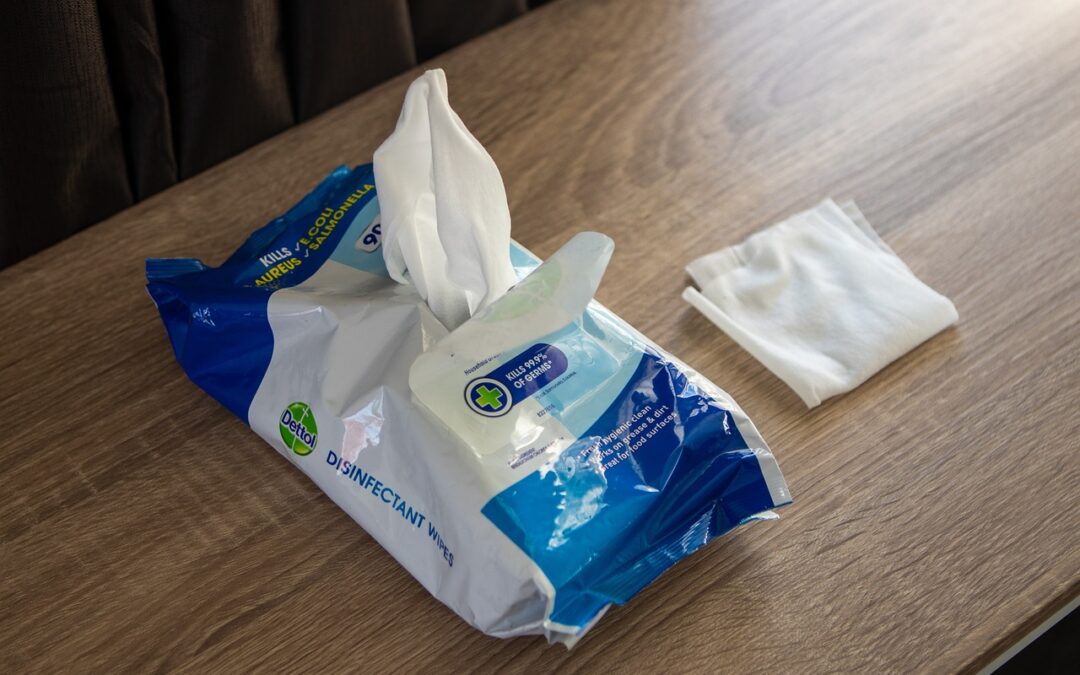One of the most common issues we encounter is clogged drains caused by flushing baby wipes. While they may seem harmless, baby wipes can create serious plumbing problems that lead to costly repairs. Let’s take a closer look at why flushing baby wipes is a bad idea and what you can do to prevent drain clogs.
How Baby Wipes Clog Your Drains
When baby wipes are flushed, they can accumulate inside your plumbing system. Unlike toilet paper, which dissolves, baby wipes hold their shape and can catch onto other debris in your pipes. Over time, this buildup can create a stubborn blockage that prevents water from flowing freely. In severe cases, wipes can combine with grease, soap scum, and other materials to form “fatbergs,” which are massive clogs that can wreak havoc on sewer systems.
Baby Wipes vs. Toilet Paper: What’s the Difference?
Toilet paper is specifically designed to break down quickly in water. This allows it to pass through pipes and sewage systems without causing blockages. Baby wipes, on the other hand, are made from durable, non-woven materials designed to stay intact when wet. Many brands market their wipes as “flushable,” but the reality is that they don’t break down as easily as toilet paper. Instead, they remain in your pipes, leading to buildup and potential clogs over time.
The Impact on Your Home’s Plumbing and the Environment
Clogged pipes caused by baby wipes and adult wipes can lead to backups, slow drains, and even sewage overflows in your home. If the clog is severe enough, it may require professional drain cleaning or even pipe replacement. Additionally, flushing wipes contributes to larger sewer system problems, increasing maintenance costs for municipalities and harming the environment. Wastewater treatment plants struggle to process these materials, leading to potential blockages and contamination in local water sources.
How to Properly Dispose of Baby Wipes
To avoid plumbing problems, the best way to dispose of baby wipes is to throw them in the trash. Even if a product claims to be “flushable,” it’s safer to discard it in a waste bin. Consider keeping a small, covered trash can in your bathroom for convenient disposal.
Preventative Measures to Protect Your Pipes
- Use the trash. As parents, we know how hard that can be sometimes, so if you’re changing a diaper and cleaning with wipes, we recommend rolling it up in the dirty diaper so it’s all contained.
- Educate Your Household: Make sure family members and guests know not to flush baby wipes or other non-flushable items.
- Use a Drain Strainer: Installing a simple drain strainer can help catch debris before it enters your plumbing system.
- Schedule Regular Drain Cleaning: Professional drain cleaning from PipeWrench Plumbing can help remove buildup before it becomes a major problem.
Call PipeWrench Plumbing for Expert Drain Cleaning
If you’re dealing with slow drains or recurring clogs, PipeWrench Plumbing is here to help. With over 25 years of experience serving the Portland metro area, our expert team provides quality plumbing services you can trust. Contact us today to schedule an inspection and keep your plumbing system running smoothly!
PipeWrench Plumbing – Quality You Expect, Peace of Mind You Can Count On.

